I couldn't recommend them more, they have been there for me since the beginning. I wouldn't be clean without this place. Thank you for your kindness.
About Connections Counseling
They prioritize healing and constructive development by using a strengths-based strategy. For young college students who use alcohol and cannabis they employ the harm reduction strategy. This means that they look for patterns of use, provide helpful advice about safe usage and look into the reasons behind these behaviors.
To help clients with substance use disorders, particularly those who also have co-occurring conditions, their clinicians work closely with the legal system. Their family therapy sessions aim to improve communication, settle disputes and fortify family bonds. These one-on-one sessions focus on achieving goals as a family and resolving issues together.
With the supportive and safe environment that group therapy offers, people can talk about their experiences with substance use. They can also practice new coping techniques, build relationships and share knowledge with one another.
An intensive outpatient program (IOP) that blends structured care with evidence based treatment is available. It is customized to match each client’s specific requirements as they move through the program. They also provide services for interventions. These are planned events attended by drug abusers, their loved ones and a trained interventionist who encourages the person to seek treatment.
Their team consists of skilled medical professionals including psychiatrists. They provide therapy in addition to writing prescriptions and managing drug orders. They also offer transcranial magnetic stimulation (TMS) that has been proven a viable noninvasive treatment for disorders such as major depressive disorder, anxious depression and obsessive compulsive disorder.
Latest Reviews
Rehab Score
Gallery
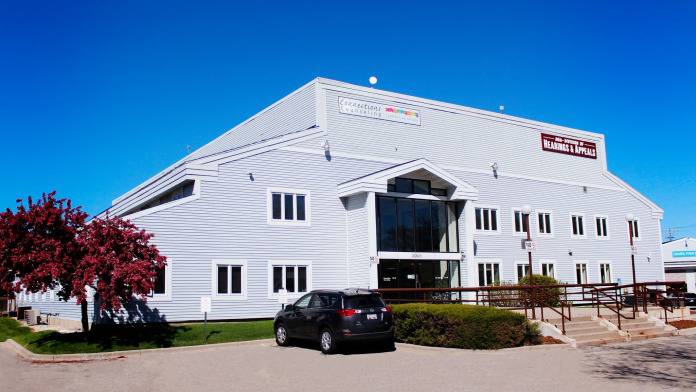

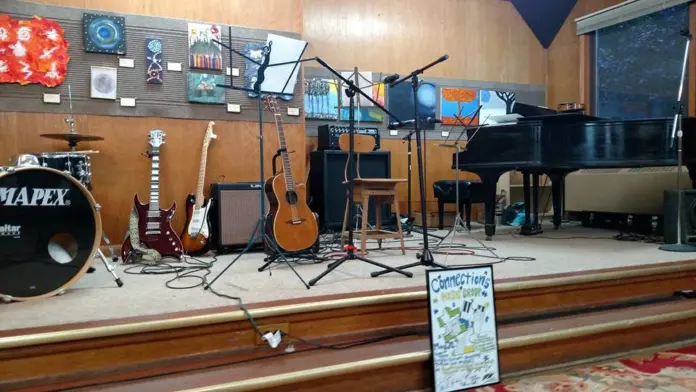
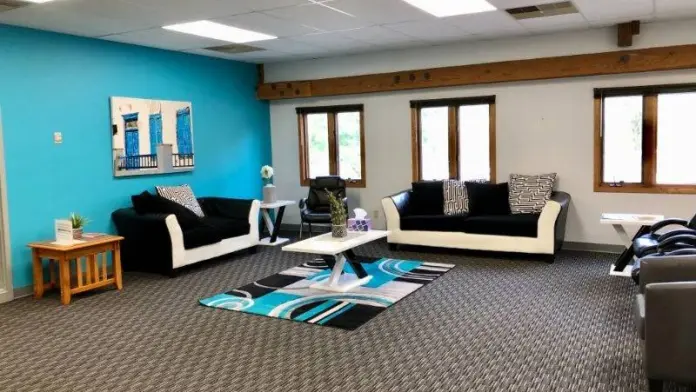
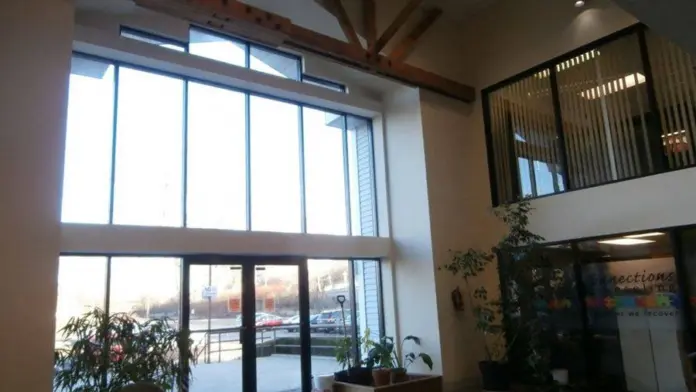
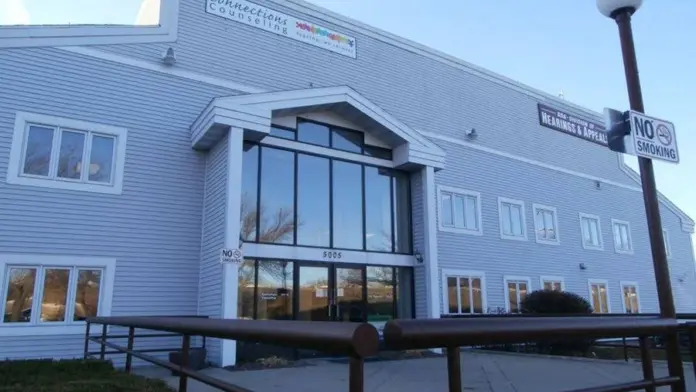
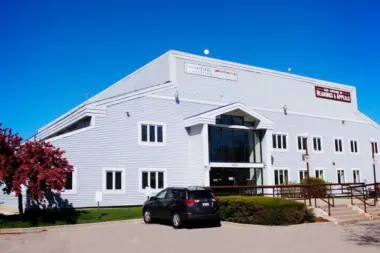
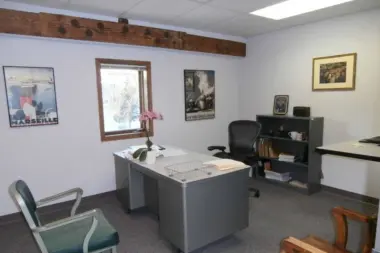

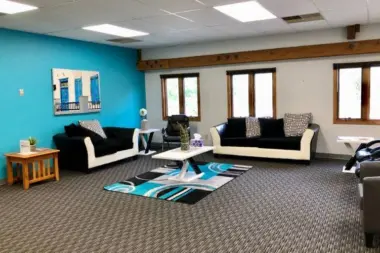

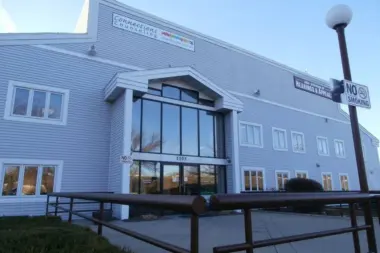
Other Forms of Payment
Medicaid is a state based program that helps lower-income individuals and families pay for healthcare. Medicaid covers addiction treatment so those enrolled can use their coverage to pay for rehab. When a program accepts Medicaid the client often pays very little or nothing out of their own pocket.
Private insurance refers to any kind of healthcare coverage that isn't from the state or federal government. This includes individual and family plans offered by an employer or purchased from the Insurance Marketplace. Every plan will have different requirements and out of pocket costs so be sure to get the full details before you start treatment.
Self-pay involves paying for treatment out of your own pocket. You can use savings or credit, get a personal loan, or receive help from family and friends to fund your treatment. If you don't have insurance or your insurance plan doesn't cover a specific program, self-pay can help ensure you still get the care you need.
Sliding scale payments are based on a client's income and family size. The goal is to make treatment affordable to everyone. By taking these factors into account, addiction recovery care providers help ensure that your treatment does not become a financial burden to you or your family, eliminating one barrier to care.
Military members, veterans, and eligible dependents have access to specific insurance programs that help them get the care they need. TRICARE and VA insurance can help you access low cost or no cost addiction and mental health treatment. Programs that accept military insurance often have targeted treatment focused on the unique challenges military members, veterans, and their families face.
Addiction Treatments
Levels of Care
Inpatient rehab is designed to stabilize clients who are exiting detox or those who are in some form of crisis. They are an important preliminary step designed to prepare clients for outpatient, sober living, or community-based care. Clients live at the treatment center and engage in intensive addiction counseling. Group and family therapy is common. Many programs also emphasize recovery-focused life skills training to support clients' sustained sobriety. Some programs offer evidence-based holistic therapies, such as meditation.
Instensive Outpatient programs are for those who want or need a very structured treatment program but who also wish to live at home and continue with certain responsibilities (such as work or school). IOP substance abuse treatment programs vary in duration and intensity, and certain outpatient rehab centers will offer individualized treatment programs. Intensive outpatient therapy provides a higher level of care and attention than can be provided solely in individual and group sessions. IOP at Connections consists of 3 sessions per week of 3 hours per day in the mornings or evenings. The IOP format includes addiction education, family support group, relapse prevention, recovery speakers, social support, art therapy, and experiential therapy. Connections uses the matrix model, an evidenced based program to support long term recovery. IOP may be particularly helpful for individuals returning from residential treatment.
Individuals staying in a sober living home in Wisconsin benefit from support and friendship with others in recovery. They're also encouraged to continue rehab through support groups and outpatient treatment. Halfway house residents further benefit from increased responsibility and mutual accountability that helps them practice recovery skills. Their time at a sober living home prepares them to transition back to regular life after treatment.
Intervention Services helps family or friends of addicts stage an intervention, which is a meeting in which loved ones share their concerns and attempt to get an addict into treatment. Professional intervention specialists can help loved ones organize, gather, and communicate with an addict. They can guide intervention participants in describing the damage the addict’s behavior is causing and that outside help is necessary to address the addiction. The ideal outcome of an intervention is for the addict to go to rehab and get the help they need. Comprehensive interventions are facilitated by two experienced clinicians. Interventions typically consist of two to three sessions meeting with family and concerned parties prior to the actual intervention. The facillity helps families create a plan of action and coordinate services.
Treatments
The goal of treatment for alcoholism is abstinence. Those with poor social support, poor motivation, or psychiatric disorders tend to relapse within a few years of treatment. For these people, success is measured by longer periods of abstinence, reduced use of alcohol, better health, and improved social functioning. Recovery and Maintenance are usually based on 12 step programs and AA meetings.
The goal of drug rehab in Wisconsin is to address drug addiction as a complex issue that involves physical, mental, and relational aspects. During rehab, treatment focuses on each of these areas and gives you the tools you need to achieve and maintain sobriety.
Many of those suffering from addiction also suffer from mental or emotional illnesses like schizophrenia, bipolar disorder, depression, or anxiety disorders. Rehab and other substance abuse facilities treating those with a dual diagnosis or co-occurring disorder administer psychiatric treatment to address the person's mental health issue in addition to drug and alcohol rehabilitation.
A combined mental health and substance abuse rehab has the staff and resources available to handle individuals with both mental health and substance abuse issues. It can be challenging to determine where a specific symptom stems from (a mental health issue or an issue related to substance abuse), so mental health and substance abuse professionals are helpful in detangling symptoms and keeping treatment on track.
Opioid rehabs specialize in supporting those recovering from opioid addiction. They treat those suffering from addiction to illegal opioids like heroin, as well as prescription drugs like oxycodone. These centers typically combine both physical as well as mental and emotional support to help stop addiction. Physical support often includes medical detox and subsequent medical support (including medication), and mental support includes in-depth therapy to address the underlying causes of addiction.
Programs
Adult rehab programs include therapies tailored to each client's specific needs, goals, and recovery progress. They are tailored to the specific challenges adult clients may face, including family and work pressures and commitments. From inpatient and residential treatment to various levels of outpatient services, there are many options available. Some facilities also help adults work through co-occurring conditions, like anxiety, that can accompany addiction.
Young adulthood can be an exciting, yet difficult, time of transition. Individuals in their late teens to mid-20s face unique stressors related to school, jobs, families, and social circles, which can lead to a rise in substance use. Rehab centers with dedicated young adult programs will include activities and amenities that cater to this age group, with an emphasis on specialized counseling, peer socialization, and ongoing aftercare.
Recovery is most successful when clients feel accepted and validated by their peers and treatment providers. Facilities that offer LGBTQ-inclusive programming are committed to creating a safe space where everyone can grow and recover without fear of judgment or discrimination. They will have dedicated policies in place to create a safe and supportive environment that fosters free expression.
Clinical Services
Group therapy is any therapeutic work that happens in a group (not one-on-one). There are a number of different group therapy modalities, including support groups, experiential therapy, psycho-education, and more. Group therapy involves treatment as well as processing interaction between group members. Connections Counseling offers a variety of groups to meet the needs of all ages, gender and specific areas of focus. Group involvement is typically a duration of at least 90 days with options to continue or become a group mentor. Groups provide positive group support ranging from recovery, anxiety, depression and other co-occurring topics. As clients attend groups, they have opportunities to decrease isolation, increase social connections and feel the true essence of acceptance and hope by both peers and staff.
In individual therapy, a patient meets one-on-one with a trained psychologist or counselor. Therapy is a pivotal part of effective substance abuse treatment, as it often covers root causes of addiction, including challenges faced by the patient in their social, family, and work/school life. Connections provides substance abuse and mental health individual therapy. Staff takes a unique approach to individual therapy based on practices that identify and build on the strengths of each individual. The facility works to provide best matches of patient needs to their diverse staff.
Research clearly demonstrates that recovery is far more successful and sustainable when loved ones like family members participate in rehab and substance abuse treatment. Genetic factors may be at play when it comes to drug and alcohol addiction, as well as mental health issues. Family dynamics often play a critical role in addiction triggers, and if properly educated, family members can be a strong source of support when it comes to rehabilitation. Connections Counseling provides educational and therapeutic support to families with evidence-based information on the neurochemistry of addiction, developmental stages, and effective parenting styles for teens and young adults. In addition, Connections Counseling provides counseling services to parents, children, siblings, spouses and any other family member affected by their loved one's addiction and/or mental health illness.
Dialectical behavior therapy (DBT) is a multi-week, closed, skill-based therapy group consisting of skill sets learned and rotated during the course. Skill sets include mindfulness, distress tolerance, emotional regulation and interpersonal effectiveness. DBT has been proven effective in treating people who have a history of substance use, impulse control issues, eating disorders, anger management, self-harm and anxiety. DBT for adults is a 16 week class. Additionally, a 6 week DBT class is tailored specifically for adolescents.
EMDR is a therapeutic modality originally developed to help process trauma. In an EMDR session, a patient is prompted to undergo eye movements that mimic those of REM sleep. This is accomplished by watching a therapist's finger move back and forth across, or following a bar of light. The goal is repetitive sets of eye movements that help the brain reprocess memory, which can significantly reduce the intensity of remembered traumatic incidents. Associated memories can heal simultaneously, leaving patients significantly calmer, more stable, and more emotionally relaxed.
Experiential therapy is a form of therapy in which clients are encouraged to surface and work through subconscious issues by engaging in real-time experiences. Experiential therapy departs from traditional talk therapy by involving the body, and having clients engage in activities, movements, and physical and emotional expression. This can involve role-play or using props (which can include other people). Experiential therapy can help people process trauma, memories, and emotion quickly, deeply, and in a lasting fashion, leading to substantial and impactful healing.
Amenities
-
Yoga Studio
Staff & Accreditations
Staff
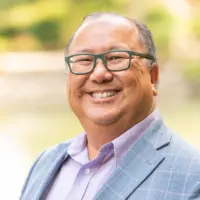
Raymond Garcia
Chief Medical Officer
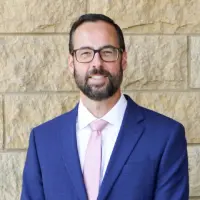
Greg Tierney, PhD
VP of Clinical Operations
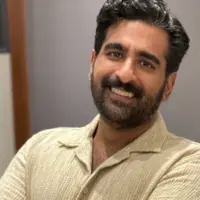
Puneet Lakhmani
Medical Director

Ian Powell
Medical Director
Accreditations

The Joint Commission, formerly known as JCAHO, is a nonprofit organization that accredits rehab organizations and programs. Founded in 1951, the Joint Commision's mission is to improve the quality of patient care and demonstrating the quality of patient care.
Joint Commission Accreditation: Yes

The Substance Abuse and Mental Health Services Administration (SAMHSA) is a branch of the U.S. Department of Health and Human Services. Established in 1992 by congress, SAMHSA's mission is to reduce the impact of substance abuse and mental illness on American's communities.
SAMHSA Listed: Yes

State Licenses are permits issued by government agencies that allow rehab organizations to conduct business legally within a certain geographical area. Typically, the kind of program a rehab facility offers, along with its physical location, determines which licenses are required to operate legally.
State License: Wisconsin
Contact Information
5005 University Avenue
Suite 100
Madison, WI 53705